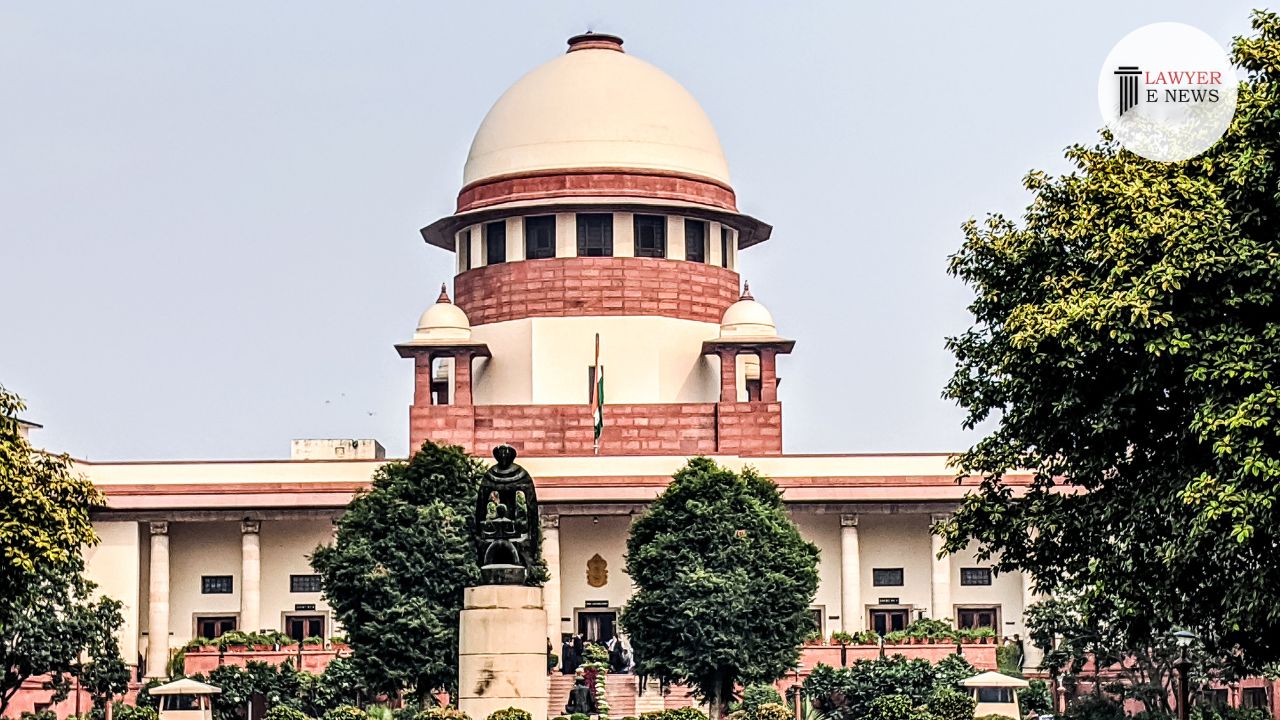-
by Admin
15 February 2026 2:36 AM



In a recent Landmark Judgement, the Supreme Court of India held that the property in dispute, in the case of ELUMALAI @ VENKATESAN & ANR Vs. M. KAMALA AND ORS. & ETC. D.D. 25 Jan 2023 , was the separate property of Sengalani Chettiar, the father of the appellants, and not ancestral property. The court also found that Chandran, the father of the appellants, had only been an heir apparent and would have acquired rights over the property only if his father had died intestate.
The property in dispute was the self-acquired property of Sengalani Chettiar, who had first married Rukmini and had a son named Chandran. Sengalani Chettiar then married Smt. Kuppammal and had five daughters and a son from his second marriage. Chandran had executed a Release Deed in relation to the property, relinquishing his share in it and stating that there would be no further connection between him and Sengalani Chettiar except for their blood relation.
After Chandran passed away, his sons, the appellants, were impleaded as defendants in the suit for partition filed by Uma Ravi Chandran and Vinayaga Murthy, who were children of Sengalani Chettiar from his second marriage. The plaintiffs tried to exclude the appellants based on the Release Deed executed by their father. However, the trial court found the Release Deed to be void as it was executed while Sengalani Chettiar was alive, and it would not bar the appellants from inheriting their grandfather's property. The plaintiffs were only found eligible to receive a 2/7 share of the property.
The plaintiffs filed an appeal, and the High Court overturned the trial court's decree, stating that the appellants would be estopped from claiming a share in the A-Schedule property. The court also mentioned the death of the second plaintiff and determined that the first plaintiff and defendants 1 to 3 would be entitled to succeed to the share of the second plaintiff. As a result, the first plaintiff and defendants 1 to 3 would receive a 5/24 share, while the 6th defendant would receive a 4/24 share. The defendants 4 and 5 appealed the decision, feeling aggrieved by the denial of a share in the A-Schedule property.
The Supreme Court ruled that the property in question was the separate property of Sengalani Chettiar, who died in 1988. The appellants would ordinarily have inherited the share as decreed by the trial court in this case, being the children of Sengalani Chettiar's predeceased son, Chandran. However, the terms of the Release Deed executed by Chandran, which recites that he has released his share in the property, stands in the way.
The court considered whether it is a case where the doctrine of equitable estoppel would have prevented Chandran from staking a claim if he had survived his father.
The court ruled that the property in question (A schedule) was not the ancestral property of Chandran but rather the separate property of his father. Chandran was only an heir apparent and would have acquired rights over the property only if his father had died intestate. Transfer by an heir apparent is ineffective to convey any right, as it is merely spes successonis.
The Supreme Court held that the argument of the appellants claiming an independent right to the estate of Shri Sengalani Chettair, who died intestate in 1988, had no merit. While the appellants, being the children of the predeceased son, were Class I heirs under Section 8(a) of the Hindu Succession Act, their father's conduct had created an estoppel preventing them from setting up their right in the property.
The court also observed that the principle of estoppel applies without distinction based on religion. The only contention remaining was whether the principle in Gulam Abbas v. State of U.P. was applicable to the present case. The court held that having received valuable consideration, the conduct of the appellants' father had created a clear estoppel that shut out any claim by him or his children. Therefore, the appeals were dismissed, and parties were directed to bear their own costs.
ELUMALAI @ VENKATESAN & ANR Vs. M. KAMALA AND ORS. & ETC.
